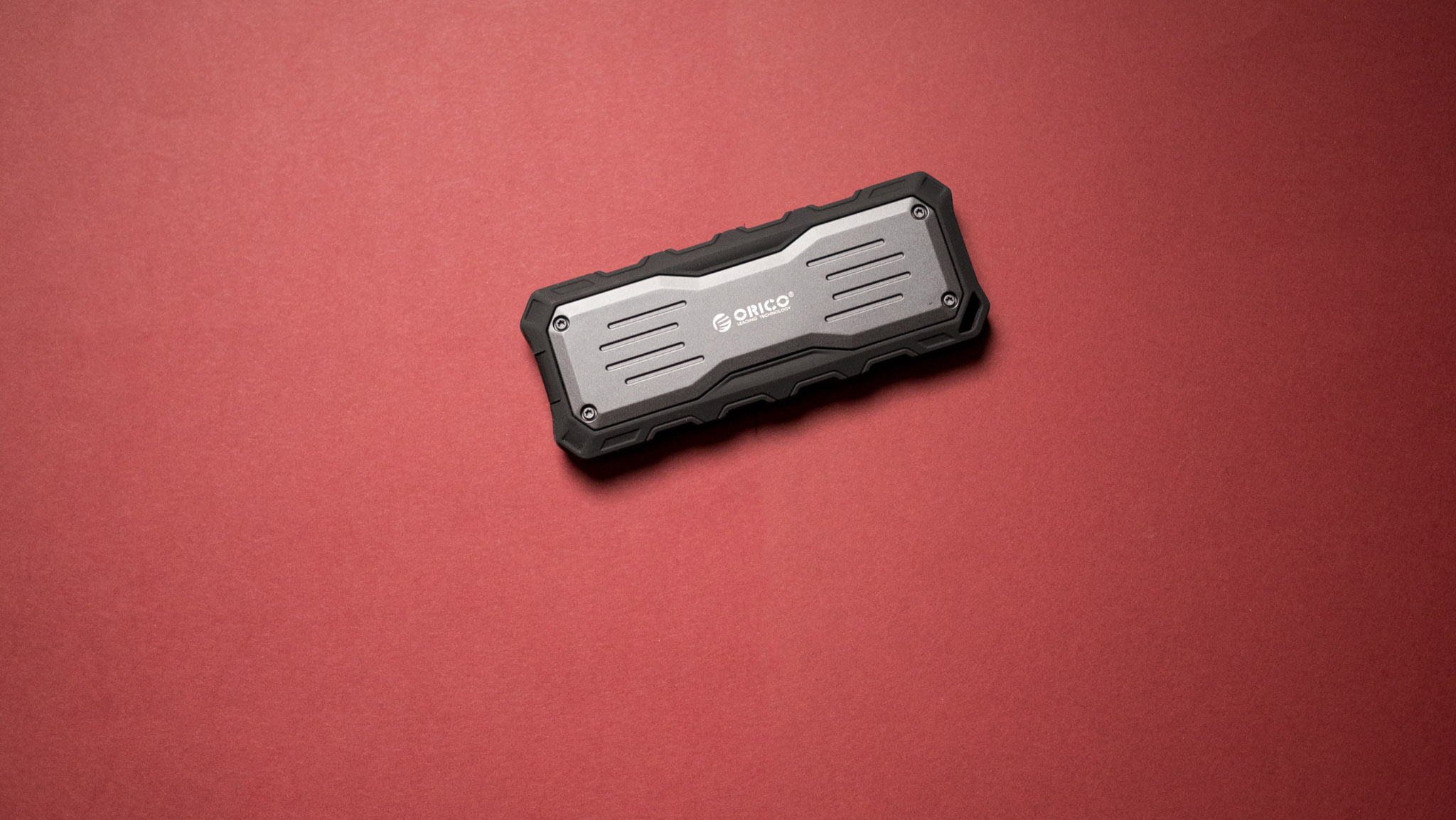
Orico is best known for its HDD and SSD enclosures, and the Chinese manufacturer has been at it for over 15 years. The brand has recently ventured into Thunderbolt 4 docking stations, storage servers, and SSDs, and I'm kickstarting coverage with the Mecha O20, a rugged external SSD that's aiming to go up against the likes of the Crucial X10 Pro and Samsung T9.
The Mecha O20 is available in 512GB, 1TB, and 2TB storage variants, and the 2TB model I'm using is available for $167 on Amazon, an enticing 30% discount on its $239 retail price. The discount makes it a much better value than its rivals, and having used the Mecha O20 for the better part of a month, I can confidently say that it holds up against the best that this segment has to offer.
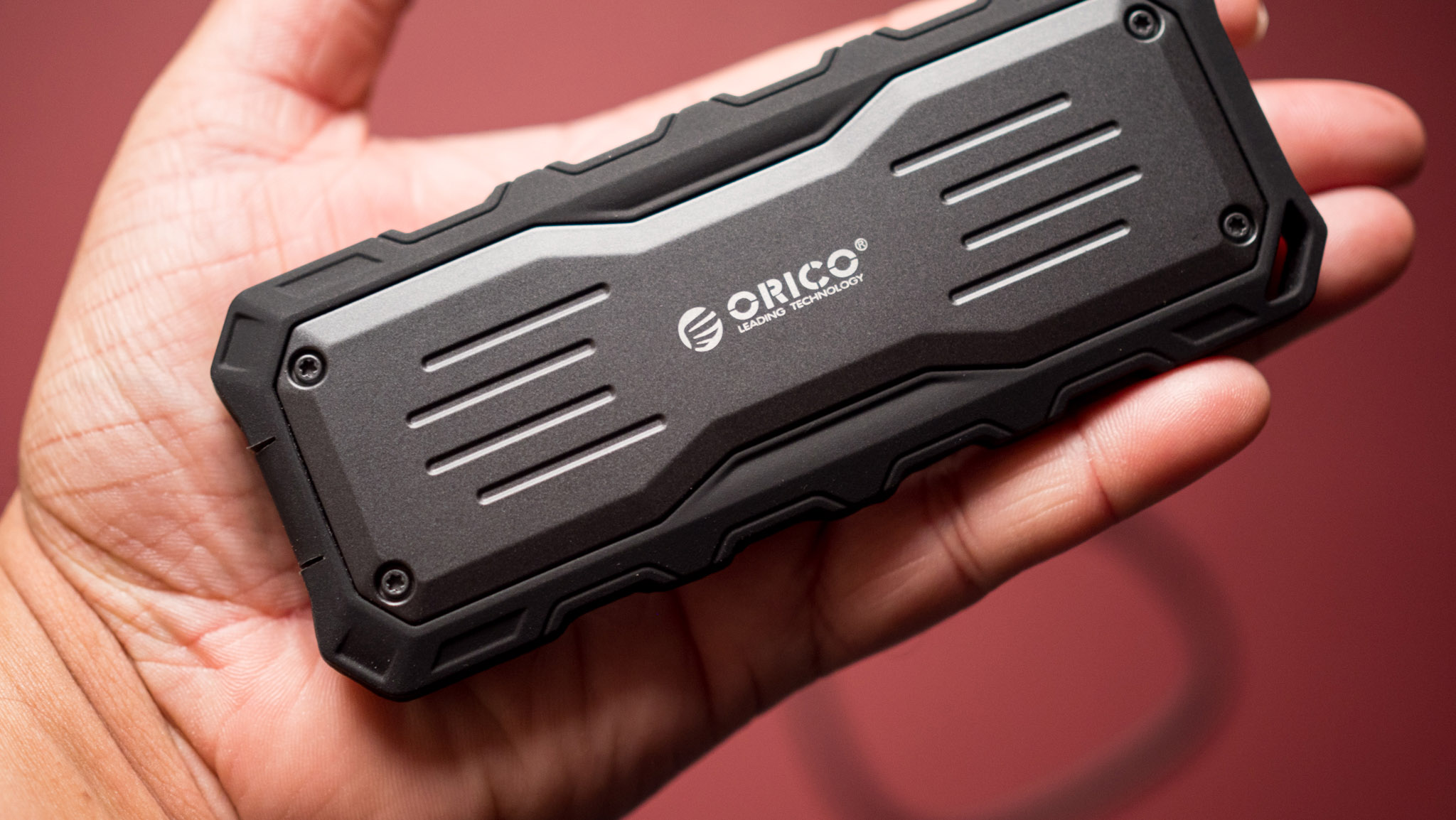
Design is a key talking point of the Mecha O20, so let's start there. While most external SSDs have an enclosure that's weather-resistant and tumble-proof, Orico is taking things to a whole new level. The chassis of the Mecha O20 is made out of an aluminum alloy, and it is durable in its own right. But what's interesting is that Orico added silicon casing to the chassis, and that allows it to withstand the elements much better.
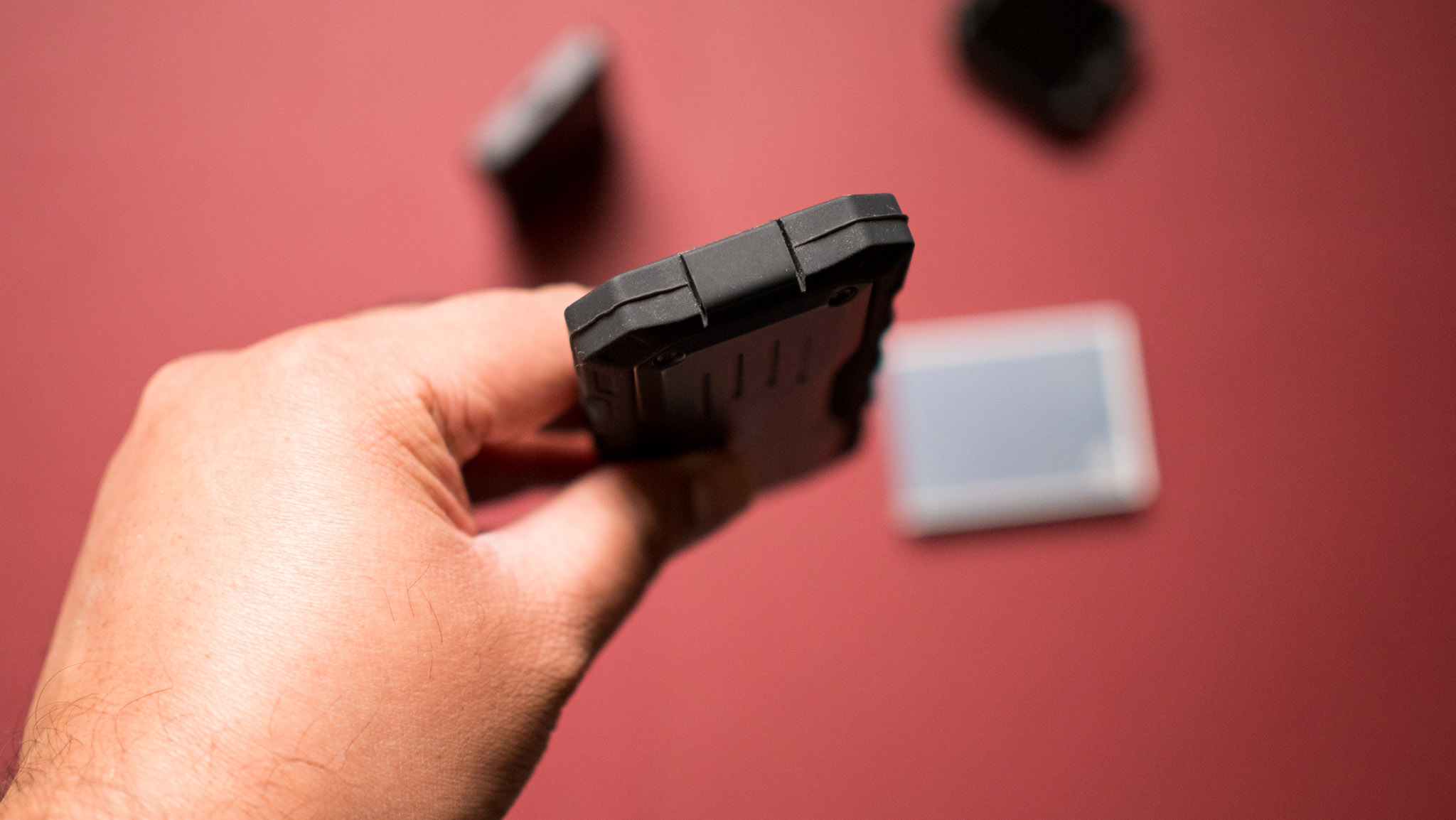
The best part is that the USB-C port is also covered by a silicone plug, and you'll need to lift the flap to get to the connector. The only issue with this is that because the port is recessed, you can't use all USB-C cables; the usual Acefast cables I use have a larger USB connector, and they were too big; this is the same problem as having a bulky phone case.
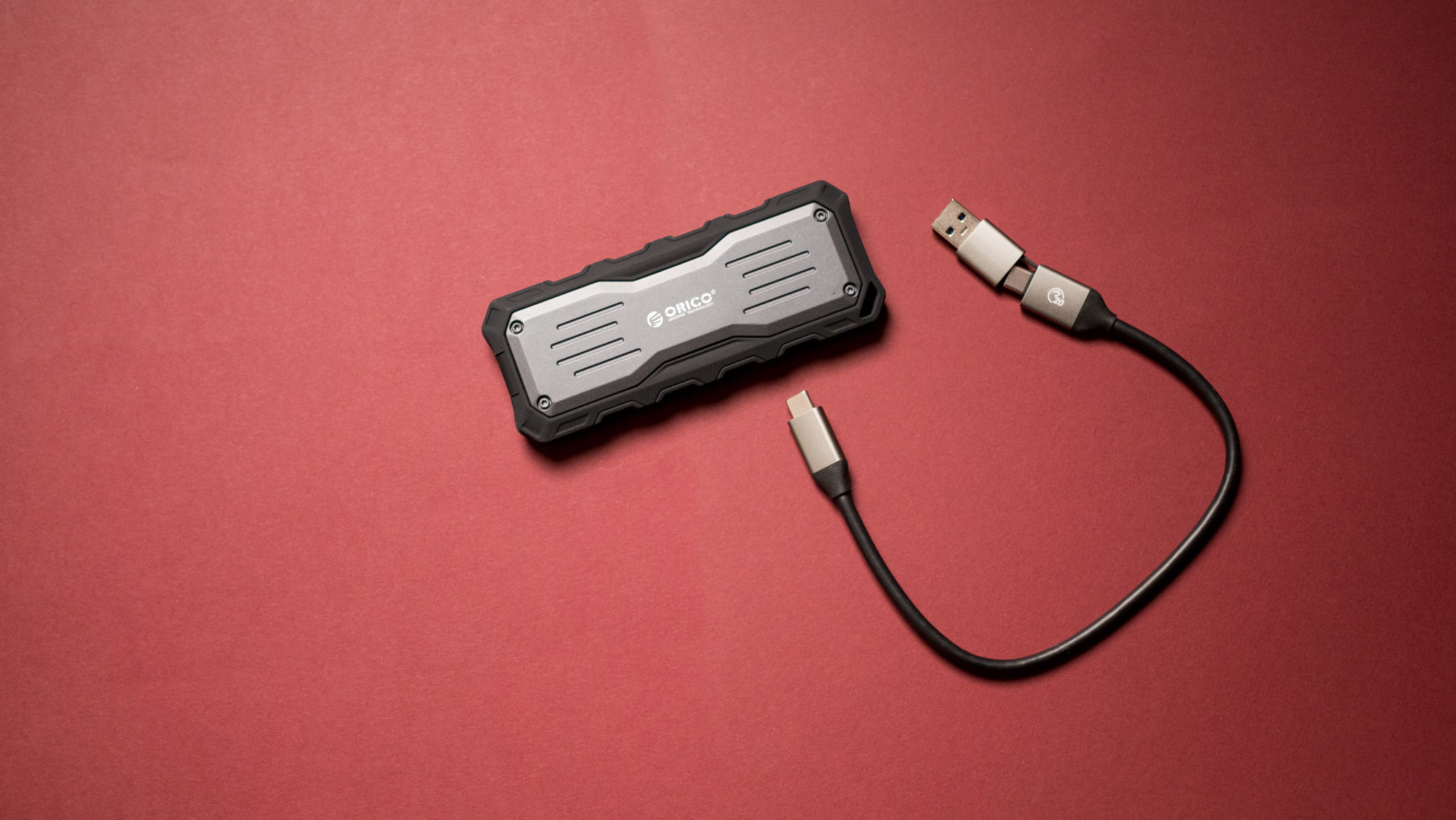
Thankfully, Orico includes a 20Gbps cable with the package, and it has a 2-in-1 connector that doubles as USB-A or USB-C based on target device. I plugged the SSD into several Android phones, Windows machine, and the iPhone 15 Pro Max, and it worked straight out the bat — no need to configure anything.
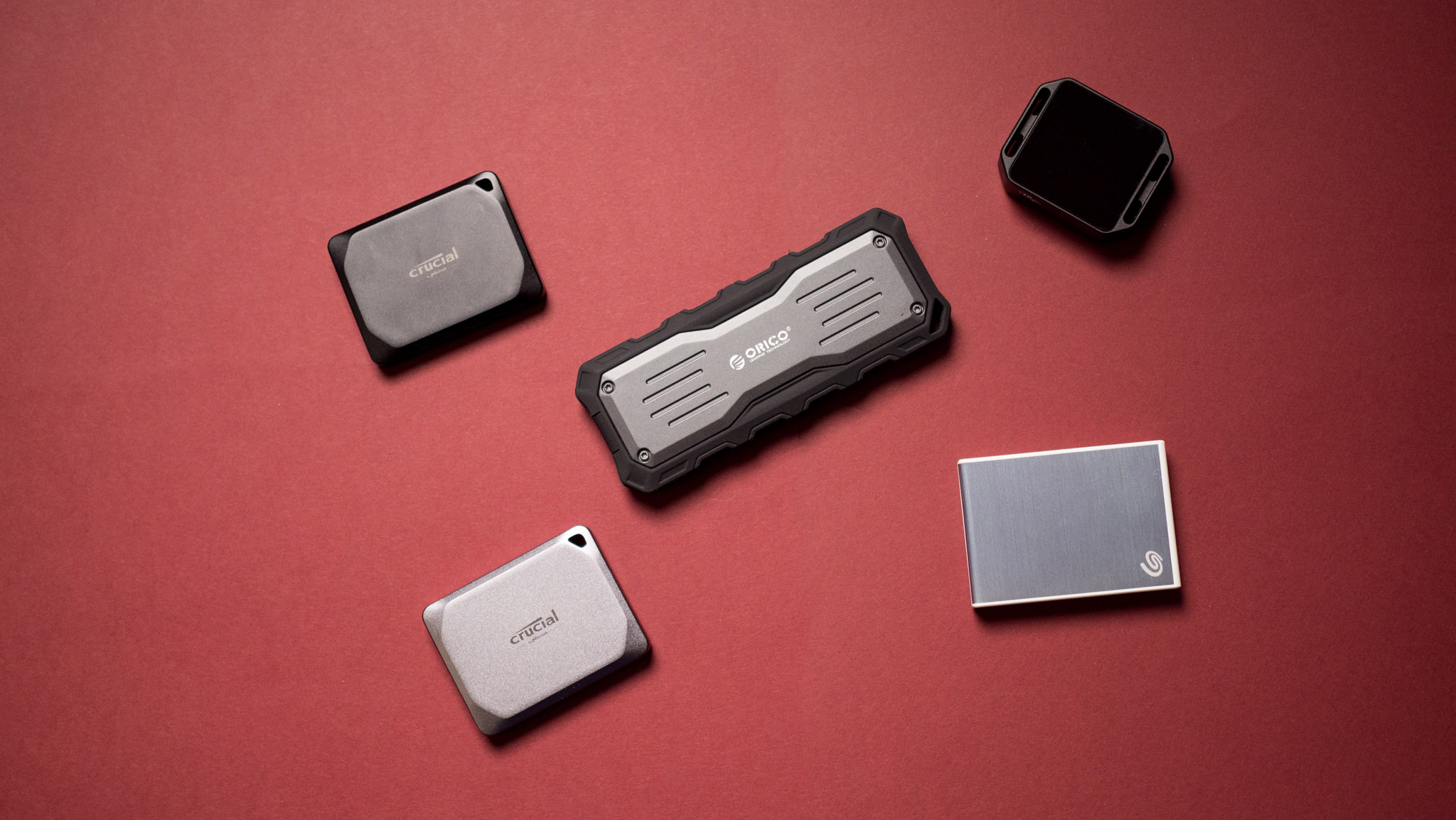
The chassis and added silicone casing makes the Mecha O20 bulkier than most external SSDs, but it isn't so big that it affects portability — you can still carry it around in a bag with ease. At 189g, it isn't heavy either, and the grey color scheme is understated.
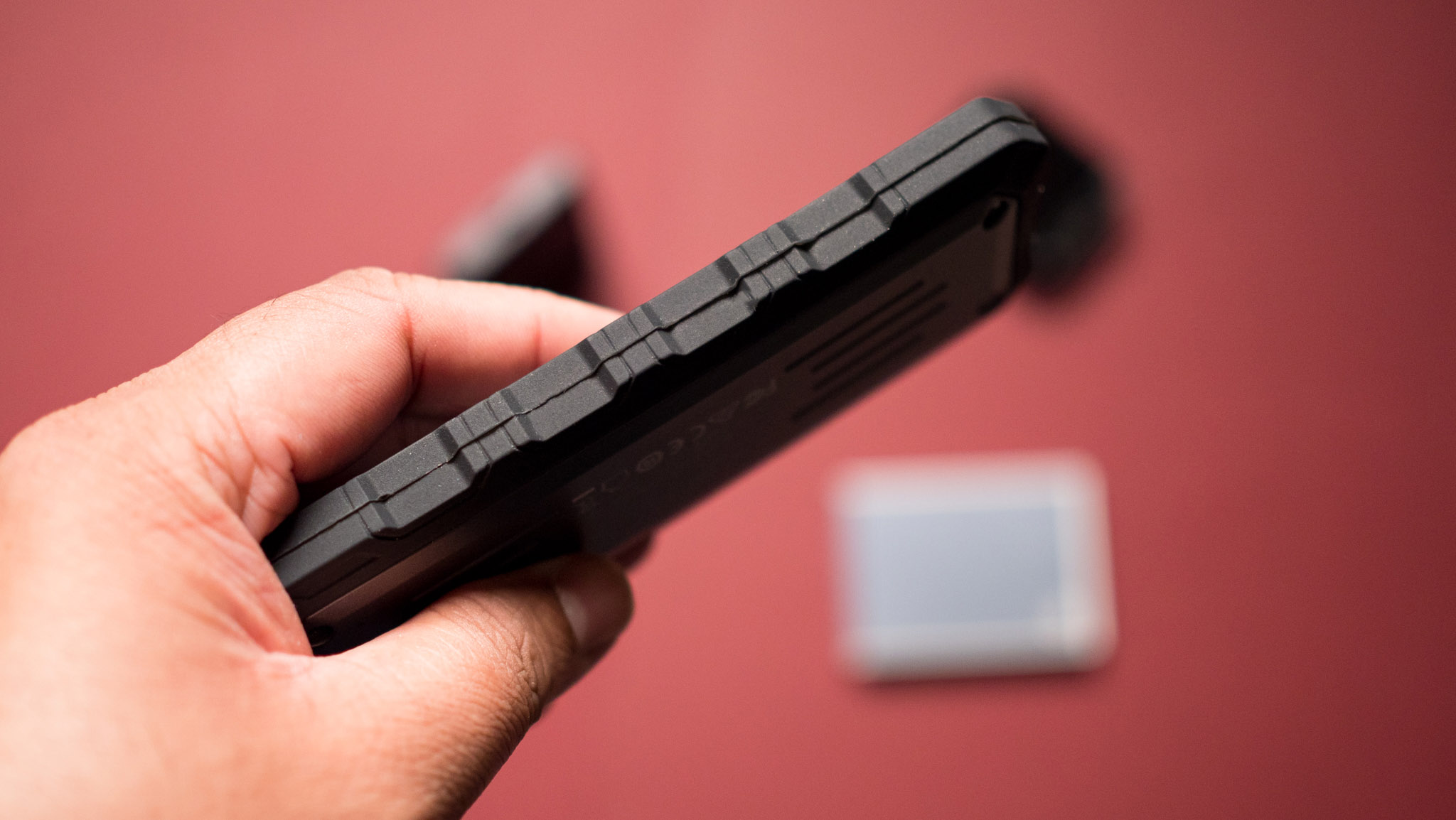
There's a hanging loop to one side, and if you're so inclined, you can attach the SSD to the outside of your bag — it is resistant to rain, tumbles, and dirt. The SSD comes with an IP54 rating, so while it isn't advisable to dunk it in water, it holds up incredibly well in any other scenario.
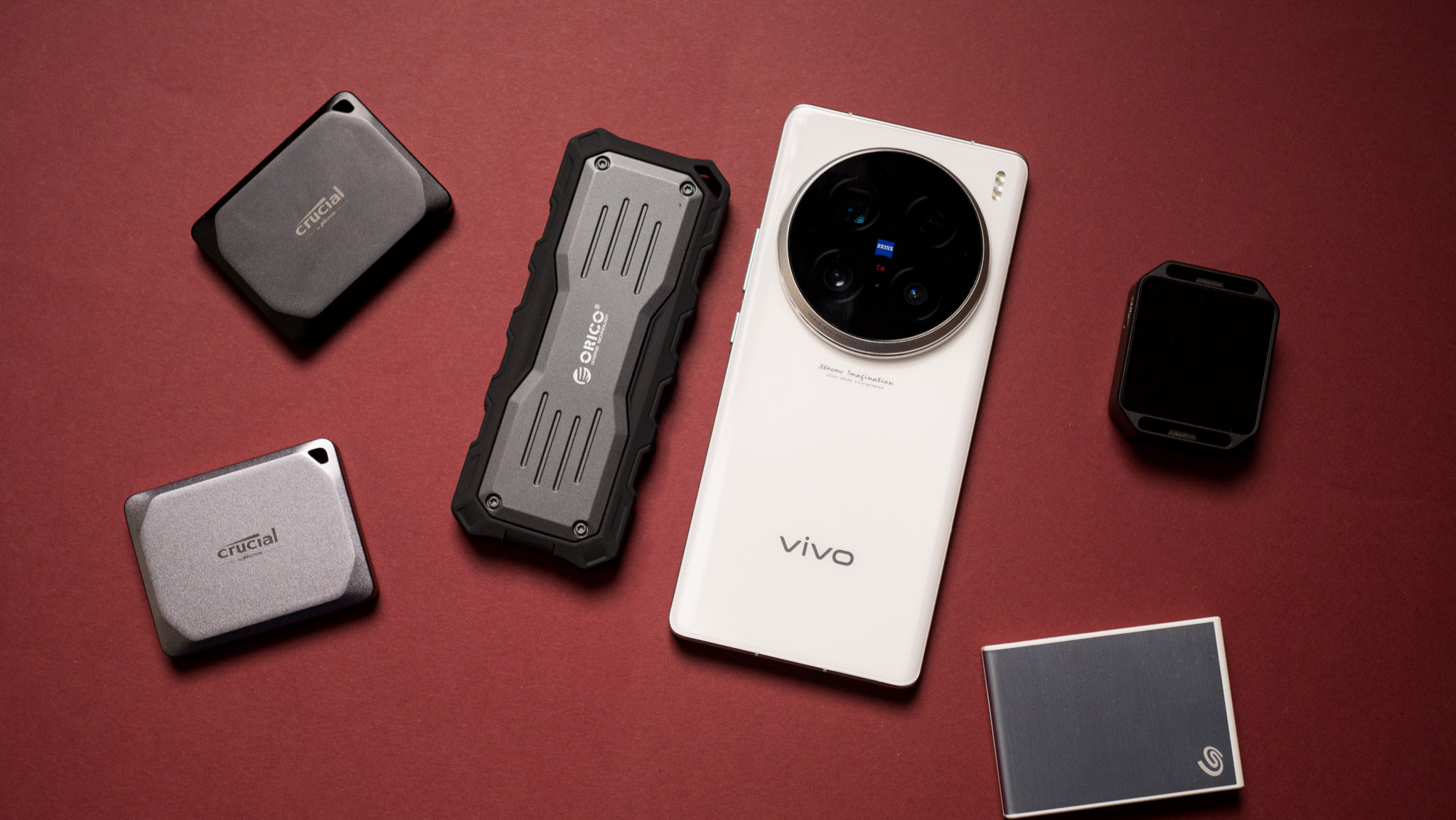
The Mecha O20 uses a USB 3.2 Gen 2x2 interface, and that means you get a 20Gbps bandwidth, with reads going up to 2,000MB/s. There aren't many devices that use the Gen 2x2 interface, and in that scenario, it switches to the 10Gbps USB standard. In my usage, I saw reads going up to 1,829MB/s and writes of 1,634MB/s, and that's among the highest of any external SSD I tested.
Random read/writes hovered at the 200MB/s figure, and again, that's a great showing by the SSD. I didn't see any issues transferring thousands of photos and videos from the Vivo X100 Ultra and Pixel 8 Pro, and the moving hundreds of gigabytes of data from Windows. In this regard, it has proven to be just as reliable as the best external SSDs.
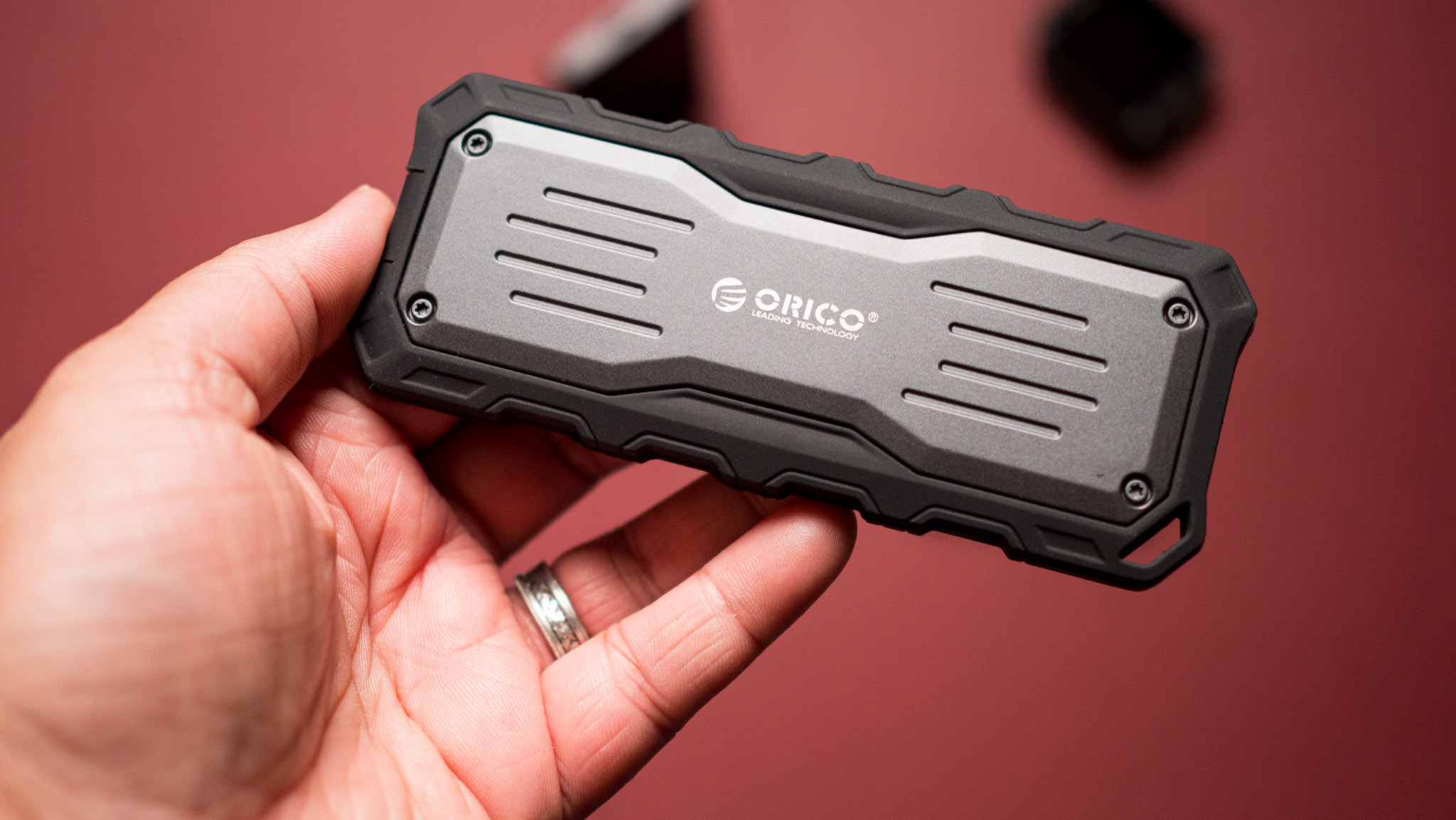
As a result, I have no qualms recommending the Mecha O20. I have a dozen external SSDs, and the Mecha O20 easily has the most rugged design. Thanks to the Gen 2x2 interface, it is among the fastest SSDs around as well, and I didn't see any issues in daily use. If you're in need of an external SSD and want something that doesn't cost as much as Samsung, the Mecha O20 is the one to get.
With a rugged design and fast transfers, the Mecha O20 is a great choice if you need an external drive that's built to last.







